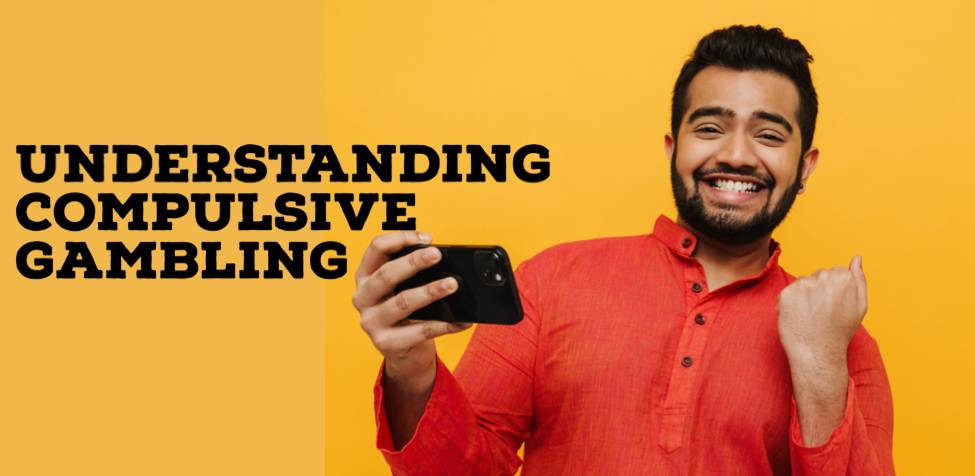Understanding Gambling Addiction

Major mental health organisations like the American Psychiatric Association (APA) and the World Health Organisation (WHO) recognise gambling addiction, also called gambling disorder, as a serious psychological condition.
It is characterised by repeated, problematic gambling behaviour that leads to distress and impairment in various aspects of life, including financial, relational, and legal issues.
Factors Contributing to Gambling Addiction
Psychological Factors
Mental Health Disorders: Conditions like depression, anxiety, and personality disorders can increase susceptibility to addiction. People may use gambling as a way to self-medicate or escape from these conditions.
Cognitive Distortions: Gamblers often exhibit cognitive distortions, such as an illusion of control, superstitions, and overconfidence in their gambling skills, leading to persistent gambling behaviours.
Impulsivity: Individuals with higher levels of impulsivity may be more prone to addiction, as they might have a more challenging time resisting the temptation to gamble.
Biological Factors
Genetic Predisposition: There is evidence to suggest a genetic component to gambling addiction, where certain individuals may have a predisposition to addictive behaviours.
Brain Chemistry: Changes in the brain’s reward system, especially those involving dopamine, play a significant role in gambling addiction. The thrill of gambling can lead to a dopamine release, reinforcing the behaviour.
Social and Environmental Factors
Cultural and Social Influence: Societal attitudes towards gambling and exposure to gambling environments can influence the likelihood of developing a gambling addiction. For example, growing up in a family where gambling is commonplace may normalise the behaviour.
Accessibility to Gambling: Easy access to gambling opportunities, such as online gambling platforms, can increase the risk of addiction.
Life Stressors: People facing significant stress in their lives, whether due to financial, relationship, or work-related issues, might turn to gambling as a coping mechanism.
Personality Traits
Thrill-Seeking Behaviour: Individuals who seek high-adrenaline activities or experiences might be drawn to the high-risk, high-reward nature of gambling.
Low Self-Esteem: People with low self-esteem might gamble to achieve success and recognition they feel lacking in other areas of their lives.
Early Big Wins
Early Gambling Success: Early experiences of big wins can set unrealistic expectations of future gambling success, leading individuals to chase after similar wins with increasing stakes.
Understanding the multifaceted causes of gambling addiction is crucial for effective treatment and prevention. These factors highlight the complexity of the disorder, necessitating a comprehensive approach to address the psychological, biological, social, and personal aspects of gambling addiction.
The Psychological Aspects of Gambling
Brain Chemistry and Underlying Conditions
Gambling activates the brain’s reward system, releasing dopamine and creating a compulsive cycle. Gambling disorder frequently co-occurs with mental health conditions like depression, anxiety, and ADHD. It also has impulsivity and sensation-seeking as personality traits.
Gamblers Anonymous Perspective
A Path to Recovery
Gamblers Anonymous views compulsive gambling as an illness that, while incurable, can be arrested. This perspective helps members move away from self-blame to a path of recovery through a proven program.
Recognising the Signs and Symptoms
Key indicators of gambling disorder include a preoccupation with gambling, the need to gamble with increasing amounts, unsuccessful attempts to control or stop gambling, gambling as a means of escape, and chasing losses.
Gambling and Mental Health
Gambling addiction and mental health disorders have a bidirectional relationship. Gambling can lead to mental health disorders, and existing mental health issues can increase vulnerability to gambling addiction. This includes a notable correlation with substance abuse disorders.
Emotional and Financial Impacts
Addiction leads to trust issues, stress, anxiety, and significant financial strain. This affects the individual and their interpersonal relationships, causing conflicts and neglecting responsibilities.
Denial in Gambling Addiction
Individuals with gambling addiction often use denial mechanisms like minimisation, blaming external factors, false beliefs in control, and outright refusal to acknowledge the problem to continue gambling despite adverse consequences.
Effective Solutions
Therapy and Support Groups
Combining professional therapy and support groups like Gamblers Anonymous forms an effective approach to addressing gambling addiction. Therapy focuses on individualised treatment, while support groups offer peer support and community.
Professional Help
Seeking professional help is crucial. An addiction treatment professional can provide a comprehensive treatment plan tailored to the individual’s needs, including therapy, medication, and ongoing support.
Hope Trust has specialized packages for gambling addiction, backed by over twenty years of experience. You can access support from anywhere in the world!
Recovery from gambling addiction is a journey that requires commitment, support, and various treatment approaches. With the right help and strategies, individuals can overcome addiction and rebuild their lives.
If you or your loved one is struggling with an addiction issue, click www.hopetrustindia.com for an online appointment with a therapist.